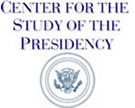Russia’s president is obsessed with the U.S. investigation into hundreds of millions in ill-gotten gains that have benefited his cronies—and very possibly him as well.
Todd Hyman, a bullet-headed New Yorker with a stocky build, speaks with an affable outer borough accent and has spent the last 18 years working in various capacities for the federal government.
He’s done a stint at the Department of Treasury’s IRS Criminal Investigation Division, and now he’s a special agent at the Department of Homeland Security, the law enforcement organization created by George W. Bush after 9/11 to ensure that U.S. soil remains secure against myriad imported threats. These include terrorism, chemical weapons, cyber-espionage, the trafficking of human beings, drugs, stolen works of art and artifacts, and—the offense that concerns us here—money laundering.
So why is Vladimir Putin, the supremo of the Russian Federation, so interested in gumshoe Todd Hyman and a couple of his DHS colleagues?
You’ll recall that last month at Putin’s grinning, soccer ball-tossing press conference with Donald Trump, the Russian president stated that he would gladly allow U.S. investigators access to the 12 Russian military intelligenceoperatives named by Robert Mueller in a highly detailed and damning indictment for hacking Democratic email servers.
But Putin said he wanted reciprocity. He said he expected Trump to let Russian agents “question officials, including the officers of law enforcement and intelligence services of the United States whom we believe are—who have something to do with illegal actions on the territory of Russia.” That is, he wanted Trump to let him conduct a fishing expedition in the heart of the American security establishment.
Trump actually called this an “incredible offer,” meaning a positive one, noting that Putin “offered to have the people working on the case come and work with their investigators with respect to the 12 people.
“I think that’s an incredible offer,” Trump reiterated.
Putin further explained that these officials he wanted to question were alleged accomplices in the movement of a staggering $400 million of stolen Russian money originally obtained through a complicated tax fraud. And—this must have been a charming thought for Trump—that cash went into the campaign coffers of one Hillary Rodham Clinton. “It might have been legal, the contribution itself, but the way the money was earned was illegal,” Putin opined.
Shortly thereafter, to drive the point home, the office of Russian Prosecutor General Yury Chaika named names, and Hyman’s was one of them.
When I reached Hyman by phone this week to ask how he felt about being on the Kremlin’s new most-wanted list for his alleged role in the wildly ambitious and far-reaching financial conspiracy outlined by Putin in Helsinki, Hyman laughed and referred me to the dead-end DHS press office. They didn't get back to me.
Of course, most Americans have never heard of Hyman or of his two DHS colleagues, Aleksandr Schwartzman and Svetlana Angert, similarly named by Prosecutor General Chaika. But some others on Putin’s interrogation list are rather more high profile: Michael McFaul, the former U.S. ambassador to Russia; Jonathan Winer, the former U.S. deputy assistant secretary of state for international law enforcement; and Kyle Parker, the chief of staff of the U.S. Helsinki Commission, which often spotlights corruption in the former Soviet Union and Eastern Europe.
Putin would have us—or at least Trump—believe these people are the legal equivalents of GRU operatives who spear-phished their way into the U.S. elections and turned American politics upside down. But why?
The case of the DHS troika is especially revealing, because Putin and his ilk like to accuse others of the crimes they might be charged with themselves. Hyman, Schwartzman and Angert were not laundering money, as Putin and his prosecutor would suggest; they were investigating money launderers. But by implying some sort of nefarious connection, Putin plays to the rogue agent deep-state paranoia of the Trump White House.
The three were integral to the compilation of the U.S. government’s evidence in a much-publicized civil asset forfeiture case brought against Prevezon Holdings, a Cyprus-registered company suspected of laundering Russian public funds obtained through an elaborate tax fraud. Some of that money, according to U.S. prosecutors, wound up in Manhattan luxury real estate, which is what piqued the federal investigators’ interest and gave them jurisdiction.
In 2013, $24 million of Prevezon’s U.S.-based assets were frozen in a civil asset forfeiture complaint brought by the U.S. District Court of the Southern District of New York. The case was settled out of court in May 2017, with the company agreeing to pay $5.9 million in damages in exchange for not having to admit to any wrongdoing.
When digging through the court documents in that case, anyone who has followed the long trail of clues about Trumpian collusion with Russian operatives will recognize instantly the name of one of Prevezon’s lawyers: Natalia Veselnitskaya.
Yes, that’s the same woman who would later meet with Donald Trump Jr., Jared Kushner, and Paul Manafort at Trump Tower in July 2016 on the pretext she could provide “dirt” on Hillary Clinton.
The then-Trump campaign and now-Trump administration has fudged and revised many times their explanations for why that meeting occurred, who knew about it when, and what was discussed. But there is no question that Don Jr. was told that he’d be sitting down with a “lawyer for Russia’s crown prosecutor” (that is, a lawyer for Chaika).
Those present at the confab have told reporters and Congressional hearings that the session was “stupid,” “useless,” “embarrassing,” “hideous,” and “bullshit.” The proffered dirt on Hillary supposedly turned out to be Veselnitskaya informing a listless and bored Trump campaign team that one Bill Browder had worked with two American venture capitalists who had in turn made some political donations to Hillary Clinton and the Democratic Party. Ta-da.
So, fast-forwarding to the summer of 2018 and that press conference in Helsinki, it appears Putin was recapitulating in front of the whole world the rough contours of risible guilt-by-association conspiracy theory first mooted hush-hush by Veselnitskaya to Trump’s son, son-in-law, and his now-indicted campaign chairman who currently is on trial.
Always, it seems, the story circles back to Browder. This is because Browder has exhaustively highlighted the so-called Magnitsky Affair, an actual case of complicated tax fraud perpetrated by an organized crime syndicate working in league with members of the Russian government. Together they stole about $1 billion in public funds, $230 million of it using companies owned by Browder’s Moscow-based hedge fund, Hermitage Capital Management, formerly the largest investment fund in Russia. And of that $230 million, the U.S. government alleged, “at least $1,965,444” was laundered by Prevezon through New York properties.
Nothing has made Putin angrier than seeing Browder push a dogged, determined and coordinated effort by Western democracies not only to track and freeze pilfered millions by pursuing offshore entities like Prevezon, but to sanction those who stole the money and covered up their crime by framing and killing the man who implicated them: Sergei Magnitsky, the tax specialist Browder hired to unearth the original crime. Human rights laws named for Magnitsky have been enacted in the U.S., Canada, the U.K., Estonia, Lithuania and Latvia, and with them have come targeted economic sanctions.
When the first of those laws was passed in Washington, Putin’s cruel and petty response was to ban adoptions of Russian children by American parents—which is why the first largely bogus Trump explanation of the Trump Tower meeting with Veselnitskaya claimed they just talked about how to help those kids (by killing the Magnitsky sanctions).
Browder, a British citizen, repeatedly has avoided extradition to Russia, which issued much-abused Interpol “red notices” against him, and he has twice been convicted by Russian courts in absentia for tax-related financial crimes there. He has denied the charges and has said, plausibly, that should he ever step foot in Russia again he’d never make it out.
Time was that the round-faced Natalia Veselnitskaya described herself as a wholly independent attorney from the Moscow suburbs and a patriotic champion of Russian orphans. Among her clients: the Katsyvs, a powerful Moscow family, whose patriarch is the vice president of Russia’s state-owned railway corporation and whose scion is the legal owner of Prevezon.
But thanks to a year of media scrutiny, and her centrality in the ongoing Mueller investigation into Russia’s election interference, some of the gaps in Veselnitskaya’s resume have been filled in.
After a tranche of her leaked email correspondence was obtained by NBC News and she was confronted in a television interview with hard proof of her ties to senior Russian government officials, she decided to call herself an “informant” for Prosecutor General Chaika.
Veselnitskaya has edited legal documents for Chaika’s office and ghostwritten an affidavit on behalf of his deputy prosecutor general, Mikhail Alexandrov, always in connection with the Prevezon investigation. And now I’ve discovered that she was also a “remote participant” in the depositions of two DHS special agents who worked on that case: namely Todd Hyman and Aleksandr Schwartzman.
Hyman was deposed in New York City on Oct. 6, 2015. According to the transcript appended to the court docket, Veselnitskaya was in attendance remotely. The next day Schwartzman, a fluent Russian speaker, stated in his deposition that he traveled to all three Baltic states collecting evidentiary documents from Lithuanian, Latvian and Estonian officials which theoretically helped stand up the U.S. government’s case against Prevezon. Again Veselnitskaya was present remotely for Schwartzman’s deposition.
In neither case did Veselnitskaya, who speaks little to no English, ask any questions of the DHS special agents. (That task fell to Prevezon’s erstwhile American counsel.) However, she will have heard Todd Hyman explain that much of the evidence he saw was provided by Browder, whom Veselnitskaya, Chaika and Putin see as an enemy of the people, or at least their people.
Today, we see that almost all the Americans on Prosecutor General Chaika’s interrogation list were involved in one way or another with passage of the U.S. Magnitsky Act in 2012—except, that is, Hyman, Schwartzman, and Angert who had nothing to do with that bill or with any sanctions packages implemented by Washington against Moscow as a result. They were merely law enforcement officers collecting evidence in a federal investigation, a job they were assigned by their superiors.
But Putin won’t let this go, and as he casts his net he wants to go after the little fish along with the big ones. Clearly he would like to do anything he can to discredit the investigations into contemporary Russia’s most notorious tax heist.
Maybe that’s because what Magnitsky stumbled upon is the Rosetta Stone that allows us to understand the conjuncture of gangsterism, corruption and foreign policy that drives the system Putin has built and presided over for almost two decades. (Some of the Magnitsky money has even been traced to a U.S.-sanctioned affiliate of Bashar al-Assad’s chemical weapons program.)
Maybe it’s just because Putin himself may have personally profited from the crime, as disclosures from the Panama Papers strongly suggest. “Magnitsky money” wound up in the offshore accounts of Sergei Roldugin, a Russian concert cellist and one of Putin’s oldest and closest friends, who is widely suspected as a bagman for some of the latter’s substantial, undeclared wealth, a charge he denies.
So, let’s re-translate Putin’s remarks at Helsinki. What he was saying to Trump in effect was: “Let me talk to the Americans who exposed my mafia state and I’ll let you talk to the spies who I’ll never admit helped get you elected.”
Putin played to Trump’s fragile ego and afforded him a rare opportunity of looking the seasoned negotiator when up against a far more formidable counterpart, even though Putin must have known that, even after Trump called it “incredible,” once experienced hands got involved the proposition would be swatted down.
Some side effects probably were not anticipated, or at least not desired, by Putin. Michael McFaul, the former U.S. ambassador to Moscow, trended on Twitter for awhile and his months-old memoir about his time in the Obama administration—and as a frequent victim of Russian government harassment—became a belated bestseller. A global solidarity campaign was mounted on his behalf after Sarah Huckabee Sanders lamely told the White House press corps there was “some conversation about” Putin’s proposal internally, but that the administration hadn’t yet made up its mind about what to do about it.
Never before has the President of the United States handed over a former U.S. ambassador to a hostile foreign power for interrogation. And it is now clear that this one won’t either. But the administration’s hesitation was damning.
Politifact, meanwhile, reported that Putin’s claim that $400 million was deposited in Clinton campaign accounts by the Ziff Brothers, the two American venture capitalists who’d worked with Browder, is a Trump-esque “pants on fire” lie. The Ziff Brothers gave $17,700 to Clinton’s campaign. Nor is there any evidence that the provenance of that five-figure gift was illicit, much less laundered out of a foreign country.
Alt-right lunatics on Reddit who already think Hillary Clinton ran a pedophile ring out of a pizza parlor and partook in Satanic rituals with John Podesta might be inclined to believe that she somehow was able, with the help of a shadowy cabal of Clinton loyalists still in government, to wash $400 million in dirty rubles in a campaign that cost her a total of $565 million. Maybe Trump believes that, too. But it’s ridiculous on its face.
Putin’s most obvious psychological hangup is projection: accusing enemies of doing exactly what he himself is guilty of doing (underwriting fascism in Europe, enabling or exporting Islamist terrorism, labeling whistleblowers who uncover crimes the true criminals).
This core quality of Putin's geopolitical brinkmanship has been apparent through three successive American administrations, often wedded to the familiar Russian tendency of whataboutism, or moral equivalence. After the Magnitsky Act was passed in the U.S., for instance, Putin’s regime sanctioned U.S. officials responsible for the conviction and incarceration of Viktor Bout, one of the most notorious arms traffickers in the world, who was also very likely linked to the Russian security services.
But never, unless I’m mistaken, has he had such chutzpah as to accuse a former U.S. ambassador and a host of other U.S. officials of committing crimes not just against Russia, but against their own country.
That Putin for a moment thought this shambolic quid pro quo proposal would be entertained by the American establishment tells you quite a lot about the contempt in which he holds that establishment under its current leadership.
Putin clearly feels as if he doesn’t have to try very hard anymore to abase and undermine our country, perhaps because he is himself impressed at how easy that is to do.
Putin’s idea of a qualified First Deputy Permanent Representative to the U.N. is a choleric child who hurls playground insults on Twitter at websites he doesn’t like. His idea of a passable “Red Sparrow” is a flame-haired gun nut who takes selfies with her recruitment targets, boasts about being a spy when drunk and liaises with her handler on Twitter. His idea of a “special envoy” to the U.S. is a has-been action star who looks like 300 pounds of condemned veal wrapped in Chinese silk, and who lies about having been involved with the CIA.
And, yes, his source for outing a bold and far-reaching U.S. government conspiracy to defraud the American electorate is a verbose shyster from the Moscow burbs who can’t keep tracks of her own emails.
The Russians used to refer to the U.S. as “the main adversary.” Now, apparently, we’re their main mug.
Michael Weiss
@michaeldweiss




